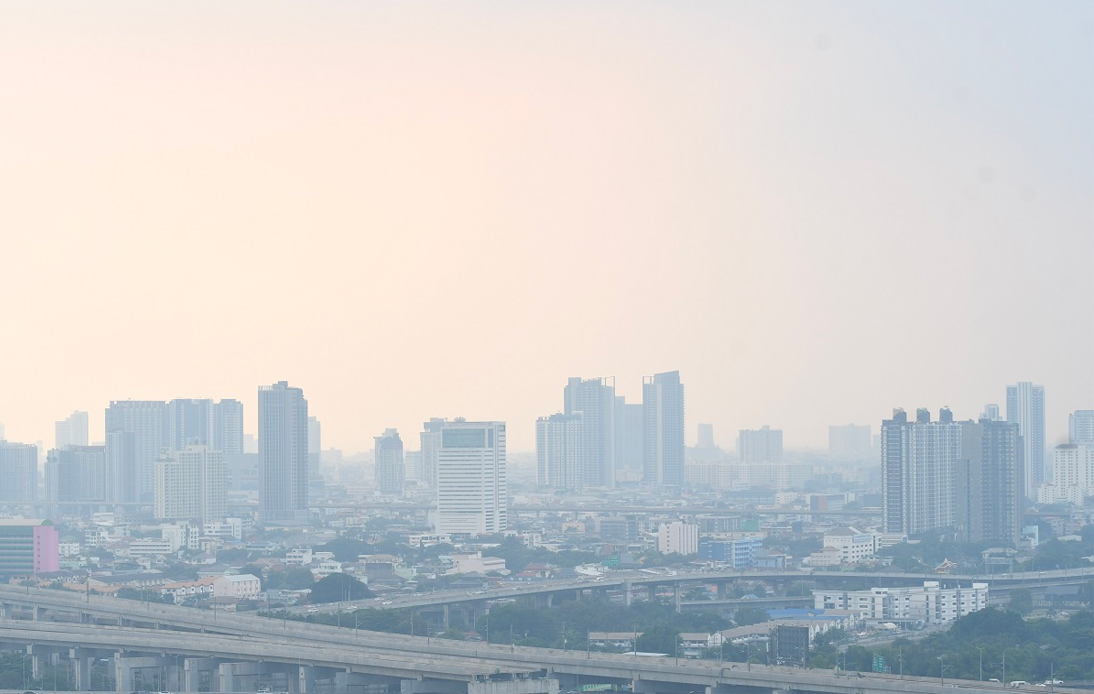
A study examining air quality in Thailand, with a particular emphasis on PM2.5 pollution, has revealed that Pattaya, located in Chonburi province, experiences the most significant adverse effects on public health.
Nationally, PM2.5 levels consistently exceed the recommended safety standards. On November 5th, data from IQAir’s website showed that Pattaya recorded the highest levels of air pollution in Thailand.
Several areas within Bangkok and the province of Nonthaburi are also affected. Thailand ranks as the 25th worst globally in the Air Quality Index (AQI), with an average PM2.5 level of 75 AQI.
Cities in Thailand with the highest levels of air pollution include:
– Pattaya, Chonburi: AQI 154
– Bang Kruai, Nonthaburi: AQI 120
– Bang Lamung, Chonburi: AQI 120
– Mueang Nakhon Ratchasima: AQI 118
– Mueang Udon Thani: AQI 116
– Nakhon Nonthaburi: AQI 105
– Thawee Watthana, Bangkok: AQI 105
– Bang Khun Thian, Bangkok: AQI 102
– Betong, Yala: AQI 99
– Mae Sot, Tak: AQI 97
The Pollution Control Department’s air quality forecast for the morning of November 5 at 7 am reported:
– The Northern region predominantly has good air quality, with levels ranging from 5.4 to 26.7 µg/m³.
– The Northeastern region has some areas above the standard, with levels ranging from 10.7 to 85.6 µg/m³.
– The Central and Western regions’ air quality is moderate, with levels ranging from 20.0 to 32.3 µg/m³.
– The Eastern region enjoys good air quality, with levels ranging from 12.5 to 27.0 µg/m³.
– The Southern region boasts very good air quality, with levels ranging from 7.1 to 12.9 µg/m³.
– Bangkok and surrounding areas have 29 locations with air quality levels exceeding the acceptable standards, with readings from 19.9 to 49.3 µg/m³.
The public is advised to prioritize their health by limiting outdoor activities and using protective gear.
Those at higher risk, particularly, should minimize outdoor exposure and use protective measures. Anyone experiencing health concerns should seek medical advice.
Individuals in areas designated as red zones—those most impacted by pollution—should stay indoors or ensure they use protective equipment when outside.
Immediate consultation with a healthcare professional is crucial if health complications arise. For current air quality information, resources such as Air4Thai.com, airbkk.com, and their related mobile apps, Air4Thai and AirBKK, are recommended.




















